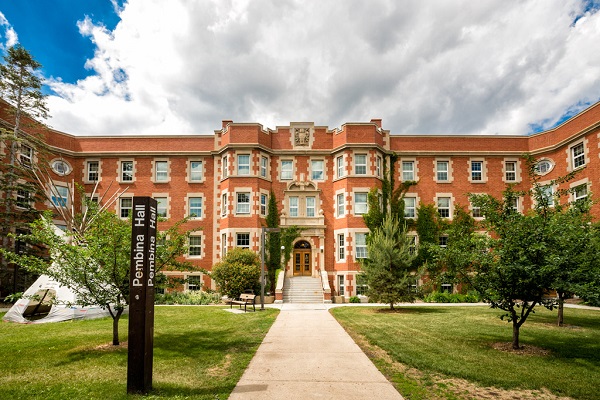University of Alberta: Indigenous mentorship program uses research to foster young people’s mental, physical and spiritual health
Teiotsatonteh Diabo really understood her influence on the younger kids in her community of Kahnawà:ke, Que., when she saw their hair.
“I had really long, dark hair and I cut it,” she said. “Then I noticed a bunch of the younger girls had all cut their hair, too. They really look up to me.”
For three years, the now-18-year-old volunteered as part of the Indigenous Youth Mentorship Program, a community/university partnership that brings together 1,500 children and 800 youth mentors for a health-based after-school program in 50 communities across five provinces.
Diabo knows she had an impact on much more than the hairstyles of her elementary school charges.
“We would play a physical activity like dodgeball with them to get them moving, get them laughing, because they’d been sitting at a desk all day in school,” Diabo explained. “We’d give them a little snack, something healthy like frozen yogurt to re-energize them, and then we’d have a craft for them to do.
“We constantly made new things for them to keep it interesting and keep them coming back,” she said.
The program builds on the strength of the youth and the communities, according to Kate Storey, associate professor in the School of Public Health, Stollery Science Lab Distinguished Researcher and member of the program’s leadership circle.
“If you were to walk into an IYMP program, you may see sweat and smiles,” she said. “But you will also see a much deeper connection and relationship-building that’s centred on Indigenous philosophies and culturally affirming educational principles like the Circle of Courage and the four Rs (Respect, Relevance, Reciprocity, Responsibility).”
“It is focused on the mental, spiritual, emotional and physical components of health,” Storey said.

